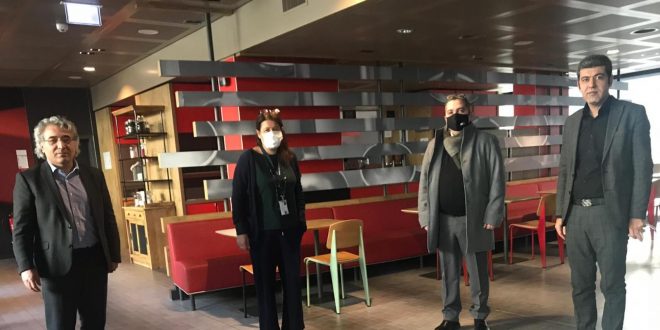01-02-2021
The advisory support team representatives of the Kurdish, Syriac-Assyrian and Yazidi participated in the fifth round of the Constitutional Committee CC, held in Geneva between 25 and 29 January 2021.
In contact with Eng. Karam Dawli, member of the Executive Office of the Assyrian Democratic Organization, who participated in this session; he spoke to ADO News about the goal of forming the Advisory Support Team AST and about the goal of keeping pace with the meetings of the CC, saying: “The team was formed by the European Center for Kurdish Studies with the support of the European Union in order to provide advice to representatives of minorities in the CC and to support their demands in the new constitution, due to their unfair representation in the CC, especially in the Mini-Committee MC that constitutes two-thirds of the opposition and civil society in the CC, where the representation of the Assyrians and Yazidis is absent and the Kurds have a single member”.
Mr. Dawli elaborated on the most important activities carried out by the team during its presence in Geneva, he indicated that, in addition to political and legal consultations, the team members held meetings with several international diplomatic missions and several members of the CC ( of two-thirds of the opposition and civil society), in order to explain their political vision and clarify their position on many principles of the Constitution, especially those related to issues that have not yet been agreed upon within the frameworks of the opposition, such as the name of the state, the position of religion in the legislation, the principle of full and equal citizenship, expanded decentralization, and the anticipated foundations of the Syrian national identity. He added, “Based on our understanding of the term” the “state of citizenship” is synonym with “the state of all citizens.” The attachment of the name of the state or the religion of its president to any national, religious or ideological characteristic or the enactment of any legislation that contradicts the international bill of human rights represents a clear violation of the principle of full and equal citizenship.
Politically, Mr. Dawli mentioned that they stressed in their meetings with diplomatic missions the importance of the international community, especially in the small group, to play a more effective role to achieve political transition in accordance with the content of UN Resolution 2254. And that, the continuation of the regime in ignoring and evading UN Resolution 2254 , without any monitoring or accountability, represents a danger not only to Syrians, but it would mean the downfall of all human values of justice, freedom and human rights and threaten to revive more extremism, terrorism and justify the regime to commit more and bigger crimes and violations that would result in additional waves of displaced people and refugees. We also stressed the importance of not recognizing the legitimacy of the presidential elections that the regime intends to hold next June.
As far as, the response received by the vision presented by the AST members during the meetings, Mr. Karam Dawli explained that the representatives of the countries of the United States, Britain, France, Canada, the Netherlands, Denmark, Italy and the European Union had identical positions, and many of them expressed that most of these issues are obvious and universal and have become principal articles in their own constitutions.
As for the opposition groups of the negotiating body, there are opposing views and it need more dialogues, precise description of concepts, check and balances, to be adopted. All these concepts and principles do not represent, today, a priority for many members of one third of civil society who focus on the priority of establishing the new constitution for the democratic system and defining the powers and mandate of the president, the separation of powers, the independence of the judiciary system and the freedom of opinion, especially at the time when the regime’s delegation is still obstructing the achievement of any progress in the work of the CC and refuses to accepts any constitutional formulations or texts in an attempt to dilute the process and oppose UN Resolution 2254.
Mr. Dawli added: despite opposing views regarding some principles, this did not prevent a third of the opposition from crystallizing a general vision on constitutional articles based on a large number of principles on which the opposition parties unanimously seek to achieve progress in this path.
In response to our question about whether there is an opportunity to express the national rights and demands of the Assyrians, Kurds and Yazidis in these sessions, Mr. Dawli mentioned that Mr. Kamiran Hajo, a member of the External Relations Office of the Kurdish National Council, made two important comments within the context of his response to some of the members of the regime’s delegation regarding considering Arabism a unifying framework for the Syrian national identity. He stressed the importance of national identity ought to be drawn from national, religious and civilizational diversity of the Syrian society and its history, and it is necessary to be reflected in the media, education and the sovereign symbols of the state. Whoever deprives and violates the basic cultural rights, of non-Arab Syrian citizens, Kurd, Assyrians Yazidis and Turcoman, in the name of Arabism with its chauvinistic Baathist face is a violation of basic rights of none Arabs, and he stresses the importance of non-Arab nationalities obtaining their national, cultural and political rights on an equal footing with the rest of the Syrians.
In his response to some of those who considered that the Assyrians had enjoyed cultural and linguistic rights, Mr. Hajo elaborated on the reality of Syriac education, in which he explained that it was nothing but a teaching of a church liturgical language and part of religious freedom and not as a national language and that it does not receive any support or government funding and it is limited to who can afford pay the costs of private schools. In conclusion, Mr. Dawli explained that despite the lack of progress in the political process, the Syrian opposition forces must not put all their eggs in one basket, but rather, seek to develop tools for serious and effective political action based on solid national consensus that reflects the aspirations of all Syrians In building a modern democratic state.
As for our national rights as Assyrians in Syria, Mr. Dawli added: We are working hard to present our vision and aspirations to the various political groups, based on our understanding of the nature of the state of citizenship that we seek, but we still need more diligent work to define our cause and our rights and most importantly by presenting a patriotic stance based on objective values and agreement with legal standards based on a clear political vision, with the importance of expanding the circle of friends and supporters, which urgently needs more coordination and integration of efforts between various forces and institutions of our people in the homeland and Diaspora, and to mobilize all individual and collective energies to establish our rights as partners with the rest of the Syrians. And ensuring a better future for our children and grandchildren.
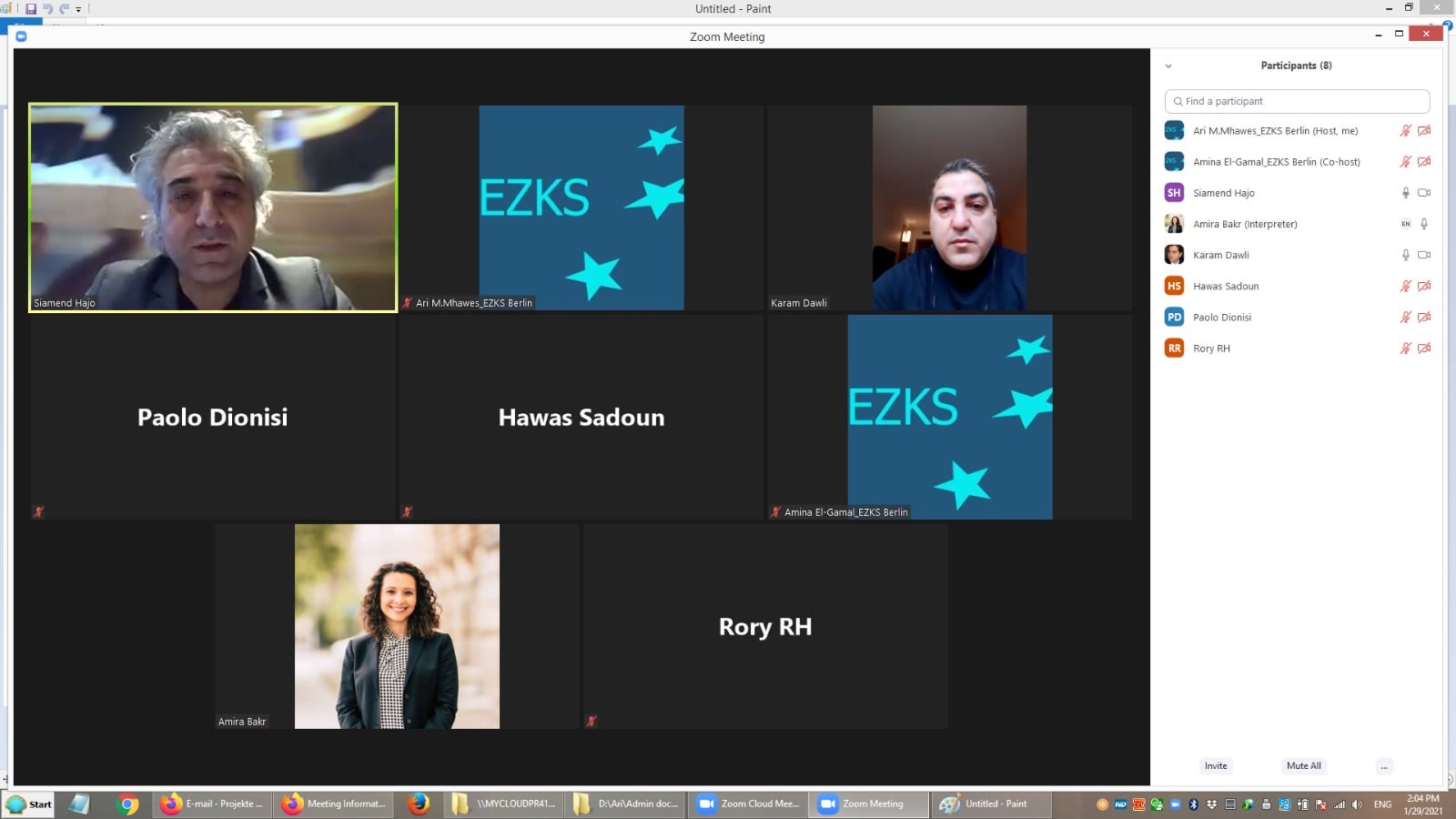
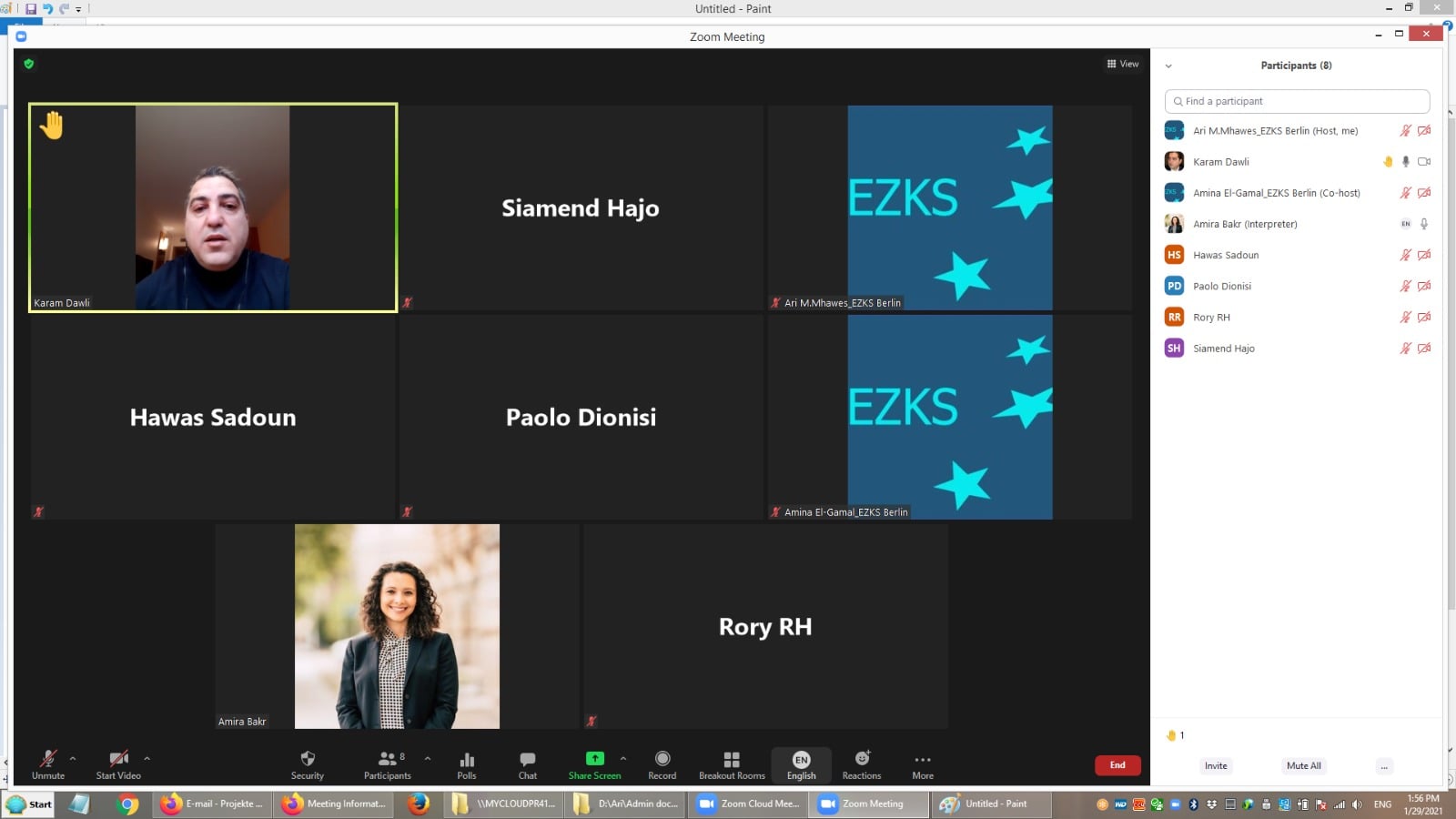
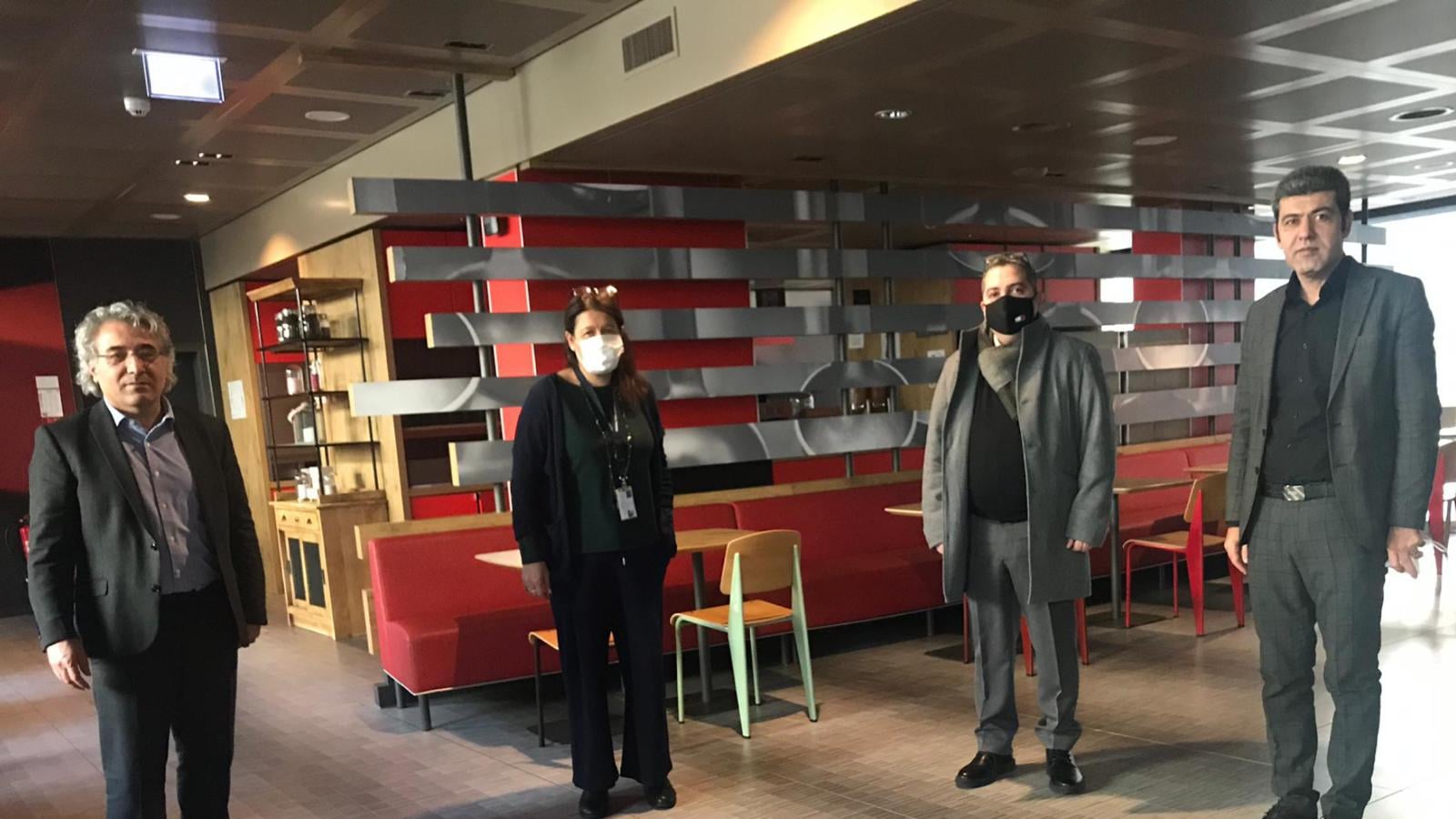
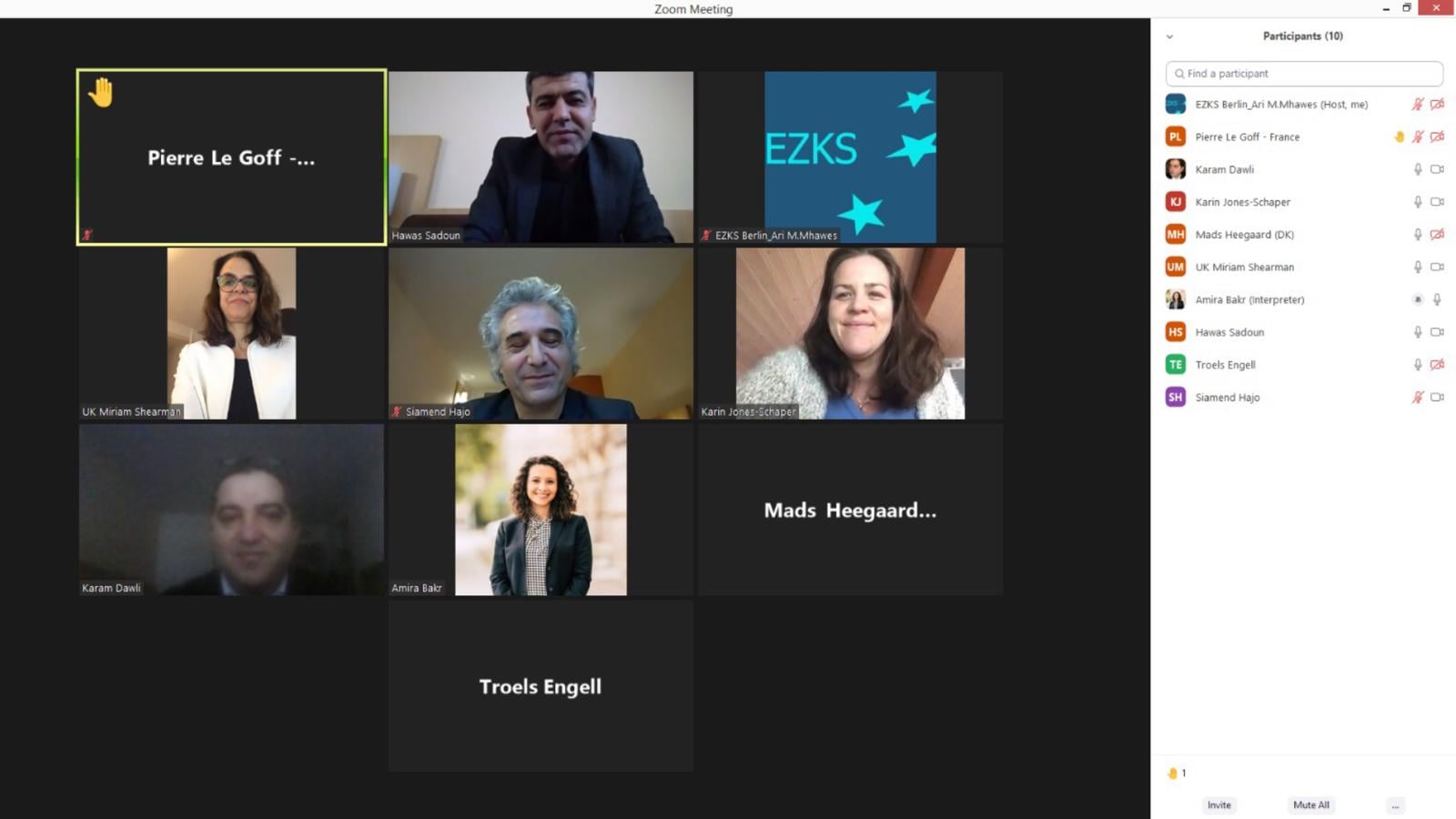
 Assyrian Democratic Organization ADO
Assyrian Democratic Organization ADO
